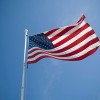Independence Day and The Role of Government | Picks of the Week
Independence Day
We’re No. 1? Americans Increasingly Don’t Think So | The Washington Post
Millennials Didn’t Abandon Our Institutions — Our Institutions Failed Them | Bill Moyers
We Need a Citizen-Maker Movement | The Huffington Post
The two separate Pew surveys cited in these articles are intimately related. They tell us something about Americans and our institutions, but they tell us more about our leaders. For a lot of Americans, the bloom is off the rose of our institutions. They question America’s exceptionalism. They feel less optimistic about the country. They don’t trust our institutions. But then why should they? For more than a generation, the public has been fed a steady diet of “the government is to blame.”
And in this age of political paralysis, an irresponsible and intransigent Congress, a President who threatens “executive action” on more issues every week, and a decreasingly objective press, who can blame the American public for feeling jaded about who we are and the health of our institutions?
But make no mistake—the real or imagined health of those democratic institutions is an unmistakably public responsibility. We live in a republic—and so to our citizens falls the responsibility for the health of our democracy, the functioning of our institutions and the tone of our discourse. Don’t blame it on the government. Don’t blame it on the press. Don’t blame it on institutions. It’s us.
The challenge really is for citizens to lead, not to simply be led. – James Ludes, Executive Director of the Pell Center
The Role of Government
If Only Thomas Jefferson Could Settle the Issue | The New York Times
Beyond Red vs. Blue: The Political Typology | People Press
We’re No. 1? Americans increasingly don’t think so. | Washington Post
An interesting New York Times story in the week of Independence Day reports on a historical study of drafts of the Declaration of Independence. The issue is whether a particular period (yes, the punctuation mark) was in Thomas Jefferson’s intended version of this founding document, or is rather a stray bit of ink. The researcher, Professor Danielle Allen, argues that the question has implications for understanding Jefferson’s (and other founders’) views of the role of government. After looking at many different published versions of the text, she concludes that the famous sentence beginning “We hold these truths to be self-evident …” was not intended to end with the reference to the “pursuit of Happiness,” but went on to include the role of government in securing various rights, as another self-evident truth.
Given that one of the most divisive questions in American society concerns the role of government, it is interesting to ponder the real intentions here. A Pew Research Center report last week discussed a “typology” of eight different kinds of Americans, defined by their basic political outlook – but pointed out that this types are “unified by frustration with politics and little else.” Most Americans, that is, regardless of their particular political outlook, have trouble seeing government as a force for good. And a Washington Post story, on the eve of Independence Day, discussing another Pew report, points out that Americans’ declining belief in their country’s greatness is significantly linked to frustration with government. So an important question for current Americans concerns the ideas in Jefferson’s 238 year-old text: Do we still believe that government is a tool that can help Americans “effect their Safety and Happiness”?- Joseph Grady, Senior Fellow for Public Policy

